Forests to Furniture – An artisan ecotour in Puerto Rico
Join GreenWood’s innovative Artisan EcoTour: May 21–30, 2020. Instructors Michael Fortune and René Delgado will guide participants through a design process that explores the roots of our craft through the creation of a beautiful stool or small table.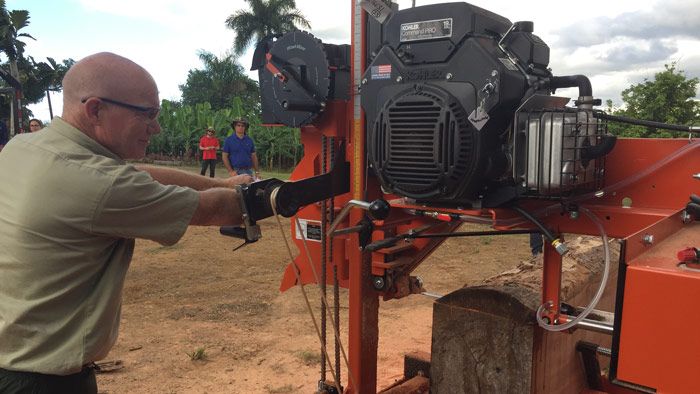
This spring, Canadian Michael Fortune and Puerto Rican René Delgado will pool their abundant design talents and deep teaching experience to lead a dynamic, collaborative workshop in Puerto Rico. Drawing inspiration from the island’s forested resources, and through the creation of a beautiful stool or small table, Michael and René will guide participants through five days of intensive design, wood bending, and construction—interspersed with three days of immersion in the delights and profound challenges facing the island’s tropical ecosystem. This is a unique opportunity to work with experts and dedicated colleagues across different cultures and disciplines—strengthening the creative ties that bind us all.
Click here for more information on the
Forest to Furniture workshop, May 21-30, 2020
For a Deeper Dive: The Backstory
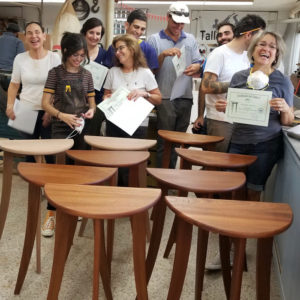 Artisan EcoTours: Sounds interesting, but what does it mean? Where did the idea come from? Why is it important? And why Puerto Rico? Before you strap on your boots, please join me on this brief narrative tour of the backstory.
Artisan EcoTours: Sounds interesting, but what does it mean? Where did the idea come from? Why is it important? And why Puerto Rico? Before you strap on your boots, please join me on this brief narrative tour of the backstory.
The GreenWood nonprofit has been training artisan woodworkers in Latin America for more than 25 years. We started in Honduras in 1993, where Brian Boggs and Curtis Buchanan first introduced traditional hand tools and appropriate technologies, teaching artisans to use the shaving horse, drawknife, and pole lathe to create beautiful ladderbacks and Windsor chairs. Our goal—then and now—is to add value to wood harvested from well-managed forests, supporting economic development as close to the source as possible. In so doing, we create incentives for local communities to manage and protect forests from their rampant conversion to agriculture, which consumes valuable trees and biodiversity across the tropics.
Over the years, we have worked with bowl carvers in the Peruvian Amazon and developed a wide range of wood products in Honduras—from furniture to boats, turned carving mallets, and sawn mahogany for the international guitar trade. Fast-forward to the fall of 2017, when GreenWood was contacted by Mystic Seaport in Connecticut, which was restoring the Mayflower II for the 400th anniversary of the Pilgrim landing in 1620. Twenty years ago, we harvested a container of curved ship’s knees in a remote village in the Honduran Mosquitia for the Seaport’s reproduction of the Schooner Amistad. Knees are naturally curved crooks, harvested from tree roots or branches, where they intersect the trunk. They are used to brace the deck and frames, or ribs, of tall ships, and Mystic needed more.

In November 2017 Honduras was undergoing a period of unusual political unrest, and we were unable to access the forest communities that had produced the Amistad knees. But only two months before, we had watched in dismay as devastating hurricanes swept across Puerto Rico, leaving millions of cubic yards of vegetative debris in their wake. Mountains of salvaged timber were still being collected in great haste by FEMA and the U.S. Army Corps of Engineers. And these included an untold volume of valuable hardwoods, like mahogany, much of it planted by the U.S. Forest Service over the last century. Forest Service colleagues on the island were seeking every opportunity to transform some of that “debris” into salable products, and they invited GreenWood to expand our hunt for Mayflower knees to Puerto Rico.
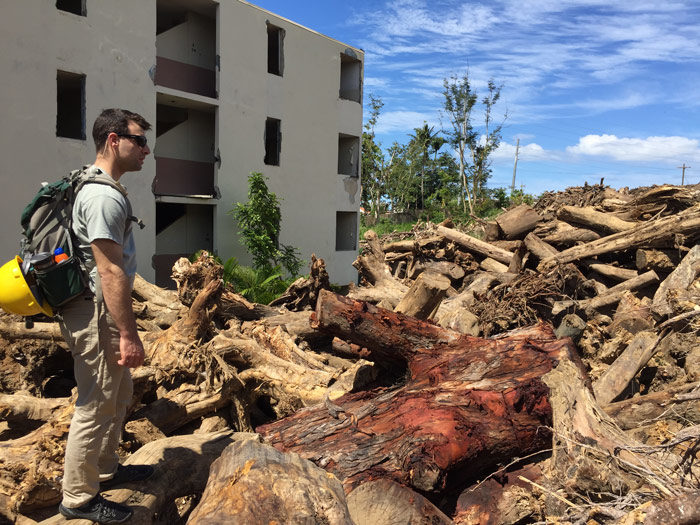
Six months after the hurricanes, our team landed in San Juan with a boatbuilder from Mystic, and we began combing through vast landfills of trunks, stumps, and branches. Two weeks of “dumpster diving” in the timber refuse left by hurricanes María and Irma did not reveal a single knee prospect worth harvesting. There were many reasons why that ship had sailed, but it’s safe to say that nobody had ship’s knees on their mind when they were clearing roads, power lines, and right-of-ways to bring the island back to life.
Disappointing as our knee safari turned out to be, what we discovered opened a fascinating window on the opportunities—and serious challenges—the island is facing. First and foremost to understanding Puerto Rico is its colonial heritage. The island is estimated to have been 4% forested when the United States took possession in 1898, after the Spanish-American War. Its rich tropical forests had been almost entirely cleared and converted to agriculture (sugar, coffee, tobacco) during several centuries of Spanish occupation. Barely more than 100 years later, Puerto Rico is now considered to be about 60% forested, as the economy was industrialized and the population moved off the farms and into towns and cities. During that same period, the U.S. Forest Service established a strong presence on the island, conducting research and aggressively planting trees (mainly mahogany and pine), which in combination with natural regeneration have repopulated much of the former agricultural landscape with diverse tropical forests.
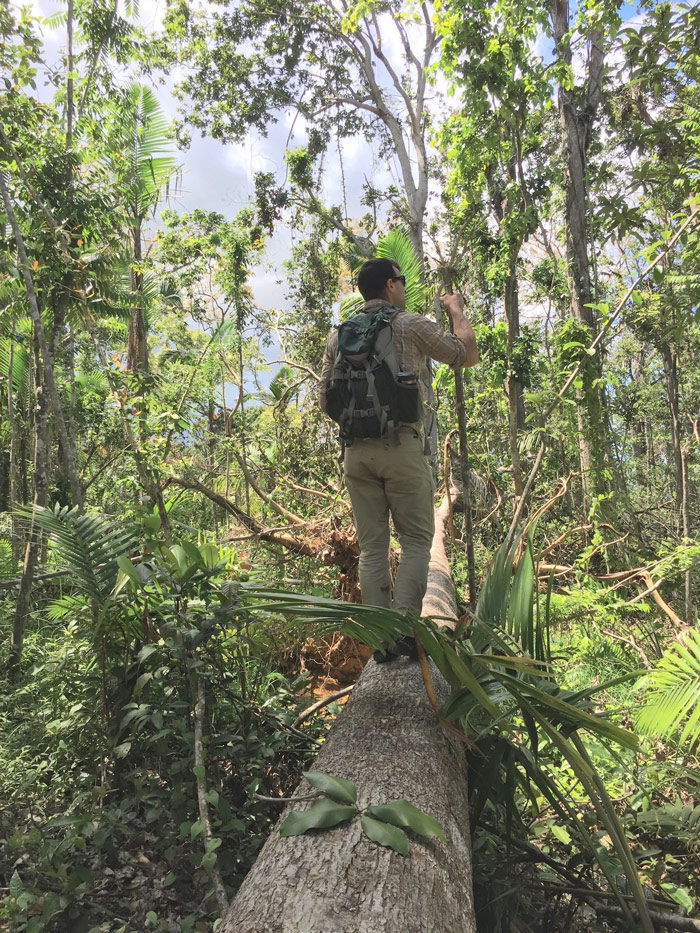 Those relatively young trees have only recently begun to reach harvestable maturity, so no timber “industry” of any scale was able to take root. Having lost its former agricultural base and with no significant timber production, Puerto Rico is now estimated to import more than 90% of all of its food and wood products, at great cost and reduced quality. This stark reality underlies the most urgent challenges facing the island today.
Those relatively young trees have only recently begun to reach harvestable maturity, so no timber “industry” of any scale was able to take root. Having lost its former agricultural base and with no significant timber production, Puerto Rico is now estimated to import more than 90% of all of its food and wood products, at great cost and reduced quality. This stark reality underlies the most urgent challenges facing the island today.
At the same time, we encountered an extraordinarily talented and diverse community of wood artisans of all description: furniture makers, carvers, turners, and luthiers, among others. But notwithstanding the vibrant and maturing forests growing in their backyard, almost all of the craftspeople we met were forced to procure their material from more expensive, obscure, and non-native sources of supply. This unfortunate reality is also reflected in a popular perception that the island’s forests are—or ought to be—”untouchable” or protected from commercial harvest, however small scale, local, or artisanal such harvest may be. There was, of course, no way to control the noncommercial harvest of the hurricanes, which encountered little to no island capacity to process or extract value from their vast “thinnings.”
It is this profound disconnect between these two island assets—the maturing forested resource and the highly developed community of wood artisans—that GreenWood is addressing in the creation of our new Artisan EcoTour program. Woodworkers share a natural affinity for trees and forests, although few of us get to explore them with knowledgeable guides. Fewer still have an opportunity to roll up our sleeves and immerse ourselves in hands-on forestry activities. At the same time few foresters know much about wood properties or their applications. But working wood, planting trees, and restoring forest habitat provide common ground to pursue our mutual passion for the resource on which we all depend. Amateurs and professionals alike can now engage in a program that combines high-quality woodworking with an immersion in Puerto Rico’s unique tropical-forest ecosystem, and its recovery from catastrophic hurricanes. In partnership with the USDA Caribbean Climate Hub, GreenWood is supporting wood artisans, promoting forest stewardship, and building greater resilience to a changing climate.
Forests to Furniture is an 8-day immersion in woodworking and the tropical ecology of Puerto Rico: 5 days in the shop + 3 days in the field. Guided tours of the rainforest, with hands-on activities (tree planting, citizen science, etc.), will provide inspiration and a depth of understanding about the tools for sustainable forest management and its critical importance in adapting to a changing climate.
Dates: May 21-30, 2020
Location: Based in greater San Juan, Puerto Rico
Tuition: $3,500 (9 nights lodging in Old San Juan included)
Skill Level: All skills welcome
Space is limited. For more information, a detailed itinerary and to reserve your spot: http://us2.forward-to-friend.com/forward/preview?u=d3e1a50fa5b2bb4881e8ec7dd&id=64fad41969
If you can’t make this one, our summer Artisan EcoTour—Sculpture, Turning and Carving—is scheduled for August 9-18, 2020, in Puerto Rico. Details to come soon.
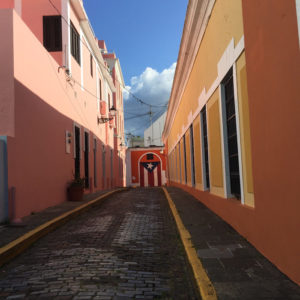


















Log in or create an account to post a comment.
Sign up Log in